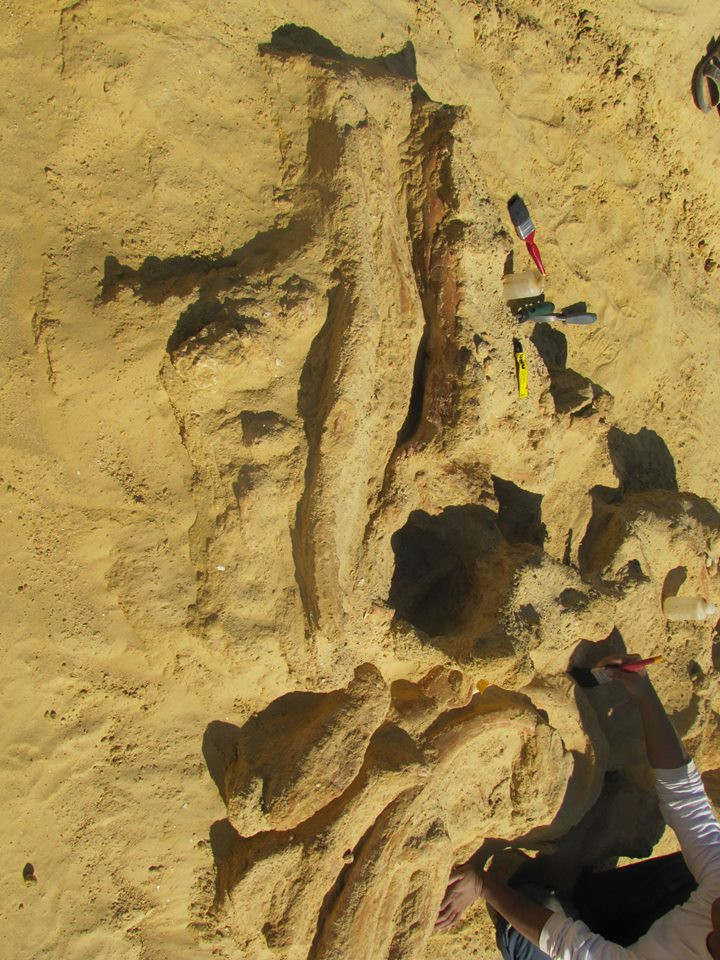Whaleception: Prehistoric whale remains found inside another whale that was eaten by sharks

A team of scientists have found the fossilised remains of a whale inside another whale, with the latter then possibly being eaten by sharks.
Located in the desert south-west of Cairo, at a site named called Wadi Al-Hitan (Whale Valley), the 60-foot long basilosaurus – one of the modern day whale's oldest relatives that swum the oceans between 40 and 34 million years ago – has been discovered with the remains of a smaller whale inside its stomach, according to Egypt's Environment Minister Khaled Fahmy.

Although there is the possibility that the smaller whale could have been an unborn baby, the basilosaurus was known for its cannibalistic tendencies, much like its modern relative, the orca.
The larger whale (the one that feasted on its smaller relation) still had the smallest vertebrae of its tail close by, entitling it to the claim of the only complete basilosaurus skeleton to have been unearthed thus far, the Cairo Post reported.
However, in another twist to the whales' deaths, shark teeth were found close to the remains, leading the Egyptian excavation team to the conclusion that the larger whale was eaten by sharks - although this is likely to have happened after its demise.
At least 10 skeletal remains of whales have been discovered in the desert south-west of Egypt's capital Cairo. As a result, Wadi Al-Hitan (Whale Valley) has been designated a UNESCO world heritage site.
When the first basilosaurus was discovered in the 1830s, it was believed to have been a giant marine reptile, hence the name basilosaurus, which means "king lizard".
© Copyright IBTimes 2025. All rights reserved.






















